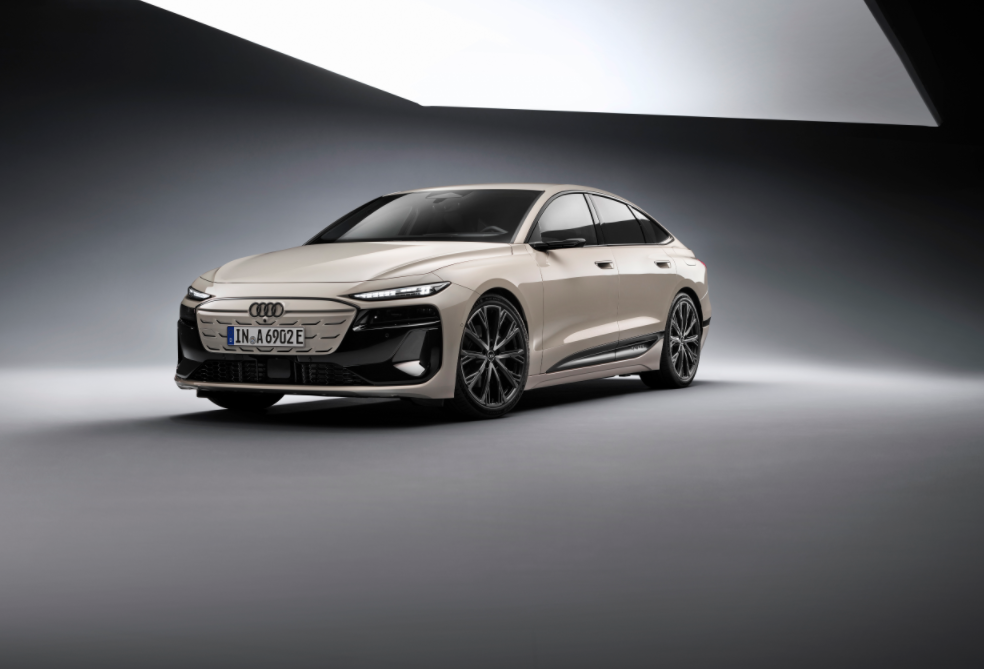Audi Reverts from New Naming System: Cognitive Confusion and Model Development Challenges
![]() 02/05 2025
02/05 2025
![]() 694
694

(European version of the A6 under the short-lived new naming system)
Within a year of its introduction, Audi has announced the abandonment of its innovative product naming system. In 2023, the automaker had unveiled a new rule using odd and even numbers to differentiate between fuel and electric vehicles.
According to this system, internal combustion engine models (including plug-in hybrids) bore odd numbers (1, 3, 5, 7), while electric models sported even numbers (2, 4, 6, 8). This led to significant renaming of models, such as the A4 fuel version becoming the A5 and the gasoline and diesel A6 slated to be renamed A7.
Explaining the change, Oliver Hoffmann, then Audi's technical director, stated that the strategy aimed to create a "clear and intuitive distinction" between powertrain systems. However, the shortcomings of this approach soon became evident. In 2024, the A5, the first model to adopt the new naming convention, was launched. As a vertical replacement for the A4L, it was named A5, causing confusion with the existing coupe model of the same name and leading to product definition issues between the A5L and A4L.

Particularly challenging was the decision to produce the A5L jointly by FAW-Volkswagen and SAIC-Volkswagen in China, both using the same name, which further complicated product differentiation. Additionally, the A6L, Audi's flagship in China, enjoys high recognition, and the number 6 holds significant cultural value as being "auspicious." Renaming it to A7L would strip it of this meaning and undermine the brand image painstakingly built by the A6L. This led to strong resistance from FAW-Volkswagen Audi. After negotiations, the Chinese version of the A6L remained the only global product that did not change its name last year.
The situation in China was not isolated, as similar issues arose globally. In response, Audi acknowledged that the new naming system did not gain "acceptance" from customers, with feedback from both customers and dealers confirming cognitive confusion. Consequently, the German automaker decided to revert to the traditional alphanumeric naming convention, distinguishing models by size rather than powertrain, with "A" for conventional sedans and "Q" for SUVs.
The A7, set to be released on March 4 under the new naming system, will be renamed A6, reverting to its original name. The electric version of the A6 will continue to be called E-tron, while the internal combustion engine versions will be labeled TFSI (gasoline) and TDI (diesel). Audi has stated that it has no plans to change the names of the new A4 and A5, meaning the A5 already in the Chinese market will retain its name, resulting in a coexistence of A4L and A5L.

(European version of the A5)
Marco Schubert, Audi's head of sales and marketing, said: "This decision was made after thorough discussions and aligns with the preferences of our customers and international dealer networks. Our updated naming method ensures a more intuitive understanding of our product line, enabling global customers to navigate our portfolio effortlessly."
German media has described Audi's change as "confusion amidst transformation." autoevolution noted, "While significant changes have occurred in the past two years, one must also recognize that this German brand needs to learn about 'consistency.' It took them a while to realize that the new naming strategy wasn't optimal."
Media outlets believe that Audi's decisions were poorly considered. Customers and dealers likely favored retaining the decades-old naming strategy, but their demands were largely ignored by Audi management. Perhaps Audi was too eager to unilaterally implement a change seemingly tied to BEVs. As demand for pure electric vehicles waned, Audi reconsidered its approach. The media suggests that had Audi's management thought carefully, "it was a flawed idea from the start."
This is because Audi must now develop several new BEV models to fill the gaps left by the A4, A6, and A8, as well as the Q2, Q4, Q6, and Q8. Including Avant derivatives of the A4 and A6 and Sportback versions of the Q4, Q6, and Q8, this amounts to 12 new models—a significant investment in an uncertain BEV sales environment.
Nonetheless, it is not too late for Audi to return to the right path.








